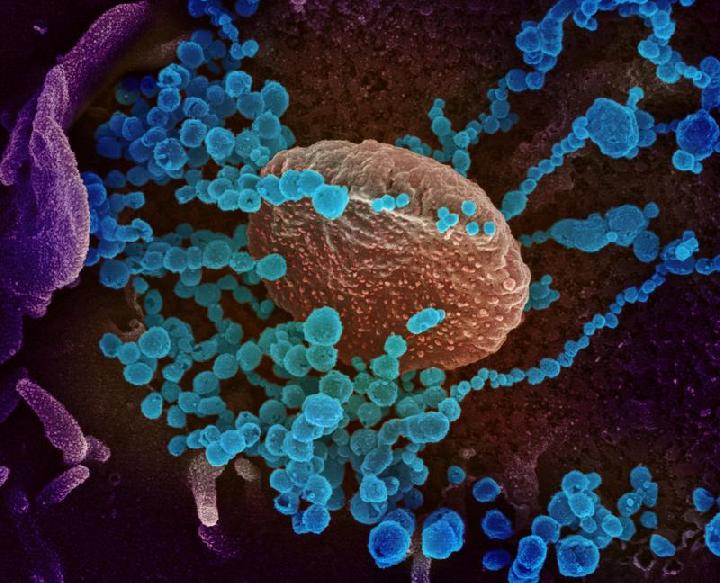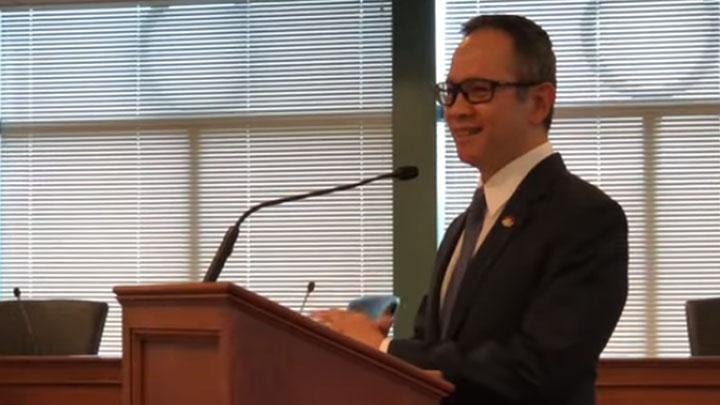Farewell to Terawan's Vaccine
Translator
TEMPO
Editor
Laila Afifa
Jumat, 30 April 2021 07:08 WIB

TEMPO.CO, Jakarta - There is no longer any need for the government to be responsible for research into the Nusantara vaccine being promoted by former Minister of Health Terawan Agus Putranto. None of the claims about it have been tested clinically.
Rather than continuing to make faceless claims about the effectiveness of the Nusantara vaccine, former minister of health Terawan Agus Putranto would do better to concentrate on preparing himself for his new job as Indonesian ambassador to Spain. If his actions in inviting politicians and former officials to become guinea pigs for the vaccine are continued, Terawan runs the risk of committing further violations of research ethics and triggering a protracted polemic.
Since it was introduced to the public as the "Nusantara Vaccine" at the beginning of this year, the research carried out by Terawan and colleague Taruna Ikrar has been controversial. Even the name is a problem. It is now known that the research based on the dendritic cell method was not carried out by Indonesians. Taruna, who is also head of the Indonesian medical Council learned about this experiment from his partner in the United States. The method was discovered by Aivita Biomedical Inc, which is based in Irvine California thousands of kilometers from Indonesia.
The hasty and secretive preparations for the Nusantara vaccine research have also led to suspicions. In his position as minister, Terawan the Ministry of Health Research and Development Agency to sponsor the research. There are allegations that he pushed the agency to allocate Rp29 billion in funding and to appoint Dr. Kariadi Public Hospital in Semarang, Central Java, as the research site. These alleged abuses of power by Terawan should be investigated.
Moreover, subsequent audit by the Indonesian Food and Drug Monitoring Agency (BPOM) discovered a number of problems in the phase one clinical trials. As well as the research participant volunteers all having been previously infected with the Coronavirus, meaning they were not suitable to be test subjects for the vaccine, the role of Aivita in the experimental progress was not mentioned in violation of the regulations. The number of research preconditions violated lead to the BPOM deferring the permit for phase 2 clinical trials on the Nusantara vaccine.
And this is where all the fuss started. A number of members of the House of Representatives (DPR) seemingly felt that their authority as lawmakers exceeded the bounds of science. These politicians may have believed that their wishes were equivalent to legal requirements and that any commands they issued could not be questioned. After failing to force the BPOM to grant a permit for phase 2 clinical trials and number of DPR members demonstrated their feelings by volunteering to take the Nusantara vaccine. One by one they went to the Gatot Soebroto Central Army Hospital (RSPAD) to receive treatment from Terawan.
A number of well-known figures followed their example, from former Golkar party general chairman Aburizal Bakrie and former state-owned enterprises minister Dahlan Iskan, to former cabinet secretary Sudi Silalahi and former Indonesian Military commander General (ret) Gatot Nurmantyo. All of them said that they had been invited by Terawan to try for themselves this therapy that had not yet been scientifically tested. Their conduct not only endangered their own health, but also demonstrated an anti-science stance. They explicitly rejected the medical authority and generally accepted scientific methodology. It was this that prompted hundreds of public figures to sign a petition expressing support for BPOM and the body's insistence on preserving scientific principles in the issuing of research permits for medicine and vaccinations.
The swift move by Coordinating Minister for Human Development and Culture Muhadjir Effendy to hold meeting with BPOM Head Penny Lukito, Indonesian Military Chief of Staff General Andika Perkasa and Health Minister Budi Gunadi Sadikin at the end of last week was the right thing to do the memorandum of understanding that they signed automatically ended the Nusantara vaccine polemic by emphasizing that Terawan's research would not lead to mass production.
Despite this, there are number of questions remaining unanswered from this agreement. Example who funded the further Nusantara vaccine research at the RSPAD and what guarantees of safety are there for the volunteers if there are negative side effects from this dendritic therapy? Rather than continuing to be vague, the government should clearly state that any continuation of the Nusantara vaccine will be entirely in the private sector without any state intervention.
This is the policy of the government of the United States towards Aivita Biomediacal Inc, which is now trying to obtain a permit for a clinical trials there. Let the Nusantara vaccine research be tested using the scientific method without politicization or nationalistic propaganda. Only if this dendritic cell therapy scientifically proved to be effective in fighting the Covid-19 pandemic will we enthusiastically welcome it.
Read the Complete Story in Tempo English Magazine




















